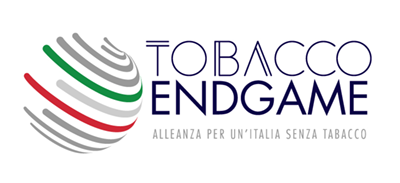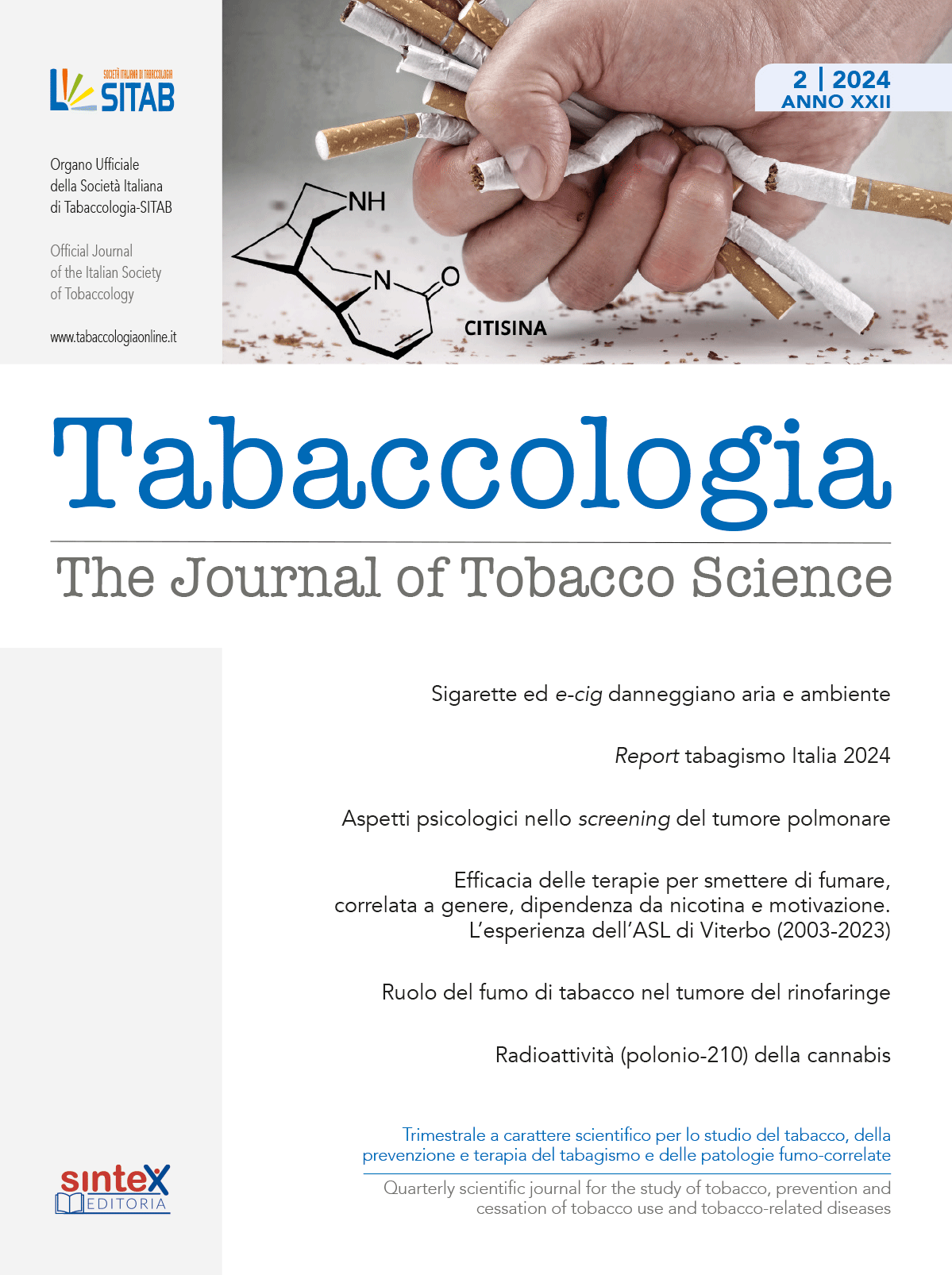|
Rassegna Stampa Scientifica Giugno 2023
|
“The children’s commissioner for England has urged ministers to crack down on the “insidious” marketing of vapes to young people, which is leaving them so addicted to nicotine they can’t concentrate on lessons. Rachel de Souza said the government would be “failing a generation” if these “highly addictive and sometimes dangerous products” were allowed to become mainstream. Her comments are underpinned by research into the experiences of 3,500 young people across the UK, which found “deeply worrying” evidence that children feel pressured to vape, with addictions preventing some from concentrating for whole lessons, while others are avoiding school toilets for fear of peer pressure to vape.” [Rachel Hall. Ministers urged to restrict marketing of vapes to children in England, The Guardian]
“There is no reason to produce flavoured vapes with bright packaging designs, unless it is to appeal to children. Highly addictive, nicotine-based products should not be marketed to anyone, let alone the young. In 2020, menthol cigarettes were banned in legislation focused on discouraging young people from smoking. But at that time, it was perfectly legal for companies to offer children free samples of flavoured, single-use vapes to entice them. That these “starter packs” are nicotine-free is little consolation — they can act as a gateway to long-term nicotine use… E-cigarettes must have proper health warnings. Vaping is not risk free. At the very least, we know nicotine is highly addictive. It has been shown to impair attention, learning, mood and impulse control in children and young adults. Many of the flavourings, while safe for oral consumption, have an unknown impact when inhaled deep into the lungs. Some legal products contain nickel, tin and lead at very small doses: long term, when inhaled, this may be associated with lung disease.” [David Strain. Vaping as a cure for smoking has brought its own ills, Financial Times]
“Ministers looking to refresh Scotland’s policies on tobacco are being urged by campaigners to add warnings to individual cigarettes. The country has set a bold aim to create a tobacco-free generation by 2034. Sheila Duffy, chief executive of charity Action on Smoking and Health (Ash) Scotland, said the action plan, which will be updated later this year, could “re-establish” the country as a “world-leading public health nation”. Campaigners from Ash are now urging the Scottish Government to follow countries including Canada and New Zealand in reforming its anti-smoking plans.” [Lucy Skoulding. Calls for health warning labels to be put on individual cigarettes, Metro]
“Scottish Government ministers are being told it is time to tackle the “true scandal” of products such as elf bars to help protect both children’s health and the environment. The Royal College of Paediatrics and Child Health (RCPCH) wants to see an outright ban on single use e-cigarettes, which come in bright colours and a range of “exotic flavours”. First Minister Humza Yousaf has already said a complete ban is not off the table, with an expert group looking at the issue. But the RCPCH said paediatricians were “increasingly concerned” about the growing popularity of vapes.” [No author. Scots paediatricians join calls for total ban on single use vapes, PA Media/STV News; See also: Children's doctors call for single-use vape ban in Scotland, BBC News; Scottish children’s doctors call for an outright ban on disposable e-cigarettes, RCPCH]
“The government has been criticised for its “completely inappropriate” endorsement of an e-cigarette manufacturer blamed for fuelling an “epidemic” of underage vaping in the US. Juul Labs was promoted in an official briefing circulated by the Department of Health and Social Care about the prime minister’s plan to close a loophole allowing free samples to be given to children… It also included a quote from Joe Murillo, a former tobacco executive and chief regulatory officer at Juul Labs, in which he praised the UK government’s policy and called for more to be done “to combat underage use of these products”… But it failed to mention that the company has been blamed more than any other for fuelling an “epidemic” of youth vaping in the US, and in recent months has agreed to pay out more than $1bn to settle claims it unlawfully promoted its products to children.” [Shanti Das. UK government endorsed e-cigarette firm accused of fuelling underage vaping, The Observer]
“Plans to introduce a ban on selling e-cigarettes to under-18 has secured approval from the Republic of Ireland's cabinet. New laws, due to be enacted this summer, will limit which retailers can sell nicotine-inhaling products in the Republic of Ireland. Earlier, the tánaiste (Irish deputy PM) described vaping as "very dangerous, particularly for young people", according to Irish broadcaster RTÉ. Micheál Martin said… "In many ways, I see vaping as the revenge of the tobacco industry in terms of getting people hooked on nicotine again."” [No author. Vaping 'the revenge of tobacco industry' – Martin, BBC News]
“It’s now mandatory for over-the-top (OTT) streaming platforms to display anti-tobacco warnings as seen in movies screened in theatres and TV, as per a Union Health Ministry notification on May 31 amending the rules under the Cigarettes and Other Tobacco Products Act, 2004… Meanwhile, as per the notification, released on World No Tobacco Day, publishers of online curated content displaying tobacco products, or their use will be required to display anti-tobacco health spots at the beginning and middle of the programme.” [Bindu Shajan Perappadan, Aroon Deep. OTT platforms mandated to show anti-tobacco warnings, The Hindu; See also: Netflix, Disney, Amazon to challenge India's tobacco rules for streaming, Reuters; India first country to address tobacco promotions in streaming content, Stanton Glantz Blog]
“The chief executive of Philip Morris International says the maker of Marlboro cigarettes is charting a path to becoming an ESG [environmental, social, and governance] stock as part of a push to win back investors that have shunned the stock because of tobacco exclusion policies. PMI’s pivot away from cigarettes towards less harmful vapour-based nicotine alternatives, which accounted for about a third of its revenues last year, placed the tobacco group’s new product line “on the podium” when it came to environmental, social and governance impact, argued Jacek Olczak.” [Oliver Barnes, Harriet Agnew. Philip Morris on path to becoming an ESG stock, says chief executive, Financial Times]
"Before the advent of e-cigarettes, there was less interest in finding an answer to this question [of nicotine's harm to the human brain] — there are already more than enough good reasons to not take up smoking. The growing popularity of vaping has provided fresh impetus, but also represents an opportunity for scientists. Research into the impact of nicotine on people’s health has long been held back by difficulties in isolating the effects of this one molecule from all the other components of cigarette smoke. “We never had a clean nicotine delivery product that would be used recreationally for long periods,” [Roswell Park nicotine pharmacologist Maciej] Goniewicz says. Now, thanks to e-cigarettes, researchers do."
Outlook
Is nicotine bad for long-term health? Scientists aren’t sure yet
Nature 07 June 2023
Anthony King
https://www.nature.com/articles/d41586-023-01840-1
Note: Open Access.
“Marked similarities between FSFW’s [Foundation for a Smoke-Free World’s] practices and previous corporate attempts to influence science were observed, including: producing tobacco industry-friendly research and opinion; obscuring industry involvement in science; funding third parties which denigrate science and scientists that may threaten industry profitability; and promoting tobacco industry credibility.”
Document analysis of the Foundation for a Smoke-Free World’s scientific outputs and activities: a case study in contemporary tobacco industry agnogenesis
Tobacco Control Published Online First: 03 May 2023
Tess Legg, Bryan Clift, Anna B Gilmore
https://tobaccocontrol.bmj.com/content/early/2023/05/02/tc-2022-057667
Note: Open Access.
“The study demonstrates a significant association between psychosocial stressors and adolescent e-cigarette use, highlighting the potential importance of interventions, such as targeted school-based programs that address stressors and promote stress management, as possible means of reducing adolescent e-cigarette use.”
Psychosocial stressors and current e-cigarette use in the youth risk behavior survey
BMC Public Health volume 23, Article number: 1080 (2023)
Published: 06 June 2023
John Erhabor, Ellen Boakye, Ngozi Osuji, Olufunmilayo Obisesan, Albert D. Osei, Hassan Mirbolouk, Andrew C. Stokes, Omar Dzaye, Omar El-Shahawy, Carlos J. Rodriguez, Glenn A. Hirsch, Emelia J. Benjamin, Andrew P. DeFilippis, Rose Marie Robertson, Aruni Bhatnagar & Michael J. Blaha
https://bmcpublichealth.biomedcentral.com/articles/10.1186/s12889-023-16031-w
Note: Open Access.
“Compared with never e-cigarette users, current and former e-cigarette users were 30% (95% CI: 1.13, 1.50) and 15% (95% CI: 1.03, 1.28) more likely to have MetS [metabolic syndrome]. Current e-cigarette use was also associated with elevated triglycerides and reduced high-density lipoprotein (HDL) cholesterol and former e-cigarette use was associated with elevated triglycerides, elevated fasting glucose, and elevated blood pressure (AOR ranged from 1.15 to 1.42, all P<0.05). The prevalence of MetS for dual users were 1.35-fold (95% CI: 1.15, 1.58) higher than that for never smokers and 1.21-fold (95% CI: 1.00, 1.46) higher than that for combustible cigarette-only users.”
Associations between e-cigarette use or dual use of e-cigarette and combustible cigarette and metabolic syndrome: Results from the National Health and Nutrition Examination Survey (NHANES)
Ann Epidemiol. 2023 May 16;S1047-2797(23)00094-7. Online ahead of print.
Jiahui Cai, Aurelian Bidulescu
https://www.sciencedirect.com/science/article/abs/pii/S1047279723000947
“A total of 7,043 reports [of calls to poison centres gathered by the National Poison Data System] were fielded due to potential poisonings by e-cigarettes, with nearly 9 in 10 cases concerning children under 5 years old. Most had either inhaled or ingested vape liquid. The number of total reports is around double the 2,901 that were reported during 2018, when around two-thirds involved children under 5 years old.” [Alexander Tin. E-cigarette sales surge — and so do calls to poison control, health officials say, CBS News. See also: MMWR reports highlighted below.]
"While e-cigarette use rose a bit, from 4.9% in 2021 to 6% in 2022, visually, it may lack the star power of cigarettes. “I’m not sure if it ever looked cool to vape, but it definitely doesn’t look cool now,” [Brock] Colyar [a New York magazine writer who covers nightlife] said. Culturally, “vaping has entered its death phase. There’s just something about cigarettes.”... Tyler McCall, a writer and the former editor-in-chief of Fashionista, blames the boon in celebrities lighting up on the Ozempic craze. While the obesity drug reportedly curbs addictions like smoking and drinking, it has become most synonymous with weight loss, and fashion media has cited it as a reason for the return of “thin is in”. Since cigarettes have long been used to curb appetite and reduce hunger, McCall sees a connection." [Alaina Demopoulos. Celebrities are smoking again: ‘Things are grungier, edgier, sleazier’, The Guardian]
“A series of “grassroots” campaigns telling UK e-cigarette users they are under attack and urging them to “stand up for their rights” by opposing new vaping regulations are being run by secretive lobby groups with links to Big Tobacco. The campaigns – pushed to millions of Facebook and Twitter users in the past few weeks – have names such as #BackVapingSaveLives and Save My Vape, and are styled to look like they are coordinated by members of the public. But in reality they are run and promoted by rightwing thinktanks and lobbyists that oppose stricter regulation and want to influence government policy. They include a movement called We Vape UK, which claims to be run by an “independent” organisation “for vapers by vapers”, but was set up by a fellow at the Adam Smith Institute, a free market lobby group that does not disclose its funders and has long-running ties to the tobacco industry.” [Shanti Das, Jon Ungoed-Thomas. Lobbyists with links to Big Tobacco fund pro-vaping Facebook campaigns, The Guardian]
“E-cigarette unit sales increased by 46.6% during January 2020–December 2022. After January 2020, sales of mint and other flavored prefilled cartridges ceased, and disposable e-cigarettes in fruit, sweet, and other flavors increased. Disposable e-cigarettes in youth-appealing flavors are now more commonly sold than prefilled units… Comprehensive restrictions on the sale of all flavored tobacco products that include e-cigarettes, menthol cigarettes, and flavored cigars are warranted in all jurisdictions. These strategies, when coupled with longstanding evidence-based strategies to prevent youth tobacco use such as price increases, comprehensive smokefree policies that include e-cigarettes, and counter-marketing campaigns, are expected to reduce youth initiation and use as well as reduce disparities in tobacco product use.”
E-cigarette Unit Sales by Product and Flavor Type, and Top-Selling Brands, United States, 2020–2022
MMWR Weekly / June 23, 2023 / 72(25);672–677
Fatma Romeh M. Ali, Andrew B. Seidenberg, Elisha Crane, Elizabeth Seaman, Michael A. Tynan, Kristy Marynak
https://www.cdc.gov/mmwr/volumes/72/wr/mm7225a1.htm
https://www.cdc.gov/mmwr/volumes/72/wr/pdfs/mm7225a1-H.pdf
Also:
Notes from the Field: E-Cigarette–Associated Cases Reported to Poison Centers — United States, April 1, 2022–March 31, 2023
https://www.cdc.gov/mmwr/volumes/72/wr/mm7225a5.htm
https://www.cdc.gov/mmwr/volumes/72/wr/pdfs/mm7225a5-H.pdf
Note: Open Access.
Related coverage:
E-cigarette sales surge — and so do calls to poison control, health officials say
https://www.cbsnews.com/news/e-cigarette-sales-vapes-poison-control-cdc-fda/
Number of children under-5 being poisoned by vaping has TRIPLED since 2018
“Susceptibility to e-cigarette use was apparent among 54% of respondents from Australia, 61% from India, 62% from the UK, and 82% from China. Factors positively associated with susceptibility were tobacco use, exposure to advertising, higher income, and having friends and family members who vape. Factors negatively associated with susceptibility were perceptions of harmfulness and education.”
Short communication
Short report: Factors contributing to young people’s susceptibility to e-cigarettes in four countries
Drug and Alcohol Dependence
Available online 13 June 2023, 109944
In Press, Corrected Proof
Simone Pettigrew, Joseph Alvin Santos, Yuan Li, Min Jun, Craig Anderson, Alexandra Jones
https://www.sciencedirect.com/science/article/pii/S0376871623001825
Note: Open Access.
Related PR:
Many young people who have never vaped may be susceptible to starting, study suggests
https://medicalxpress.com/news/2023-06-young-people-vaped-susceptible.html
“We used the cross-sectional 2019 European School Survey Project on Alcohol and Other Drugs data from 32 countries with 98 758 students aged 15-16 years and the 2020 WHO's assessment of the e-cigarette regulations… Of the respondents, 13.3% had ever used cigarettes, 10.6% e-cigarettes and 27.3% both; 13.0% currently used cigarettes, 6.0% e-cigarettes and 6.4% both… Conclusions: More comprehensive e-cigarette regulations and enforcement of age-of-sale laws may be protective of e-cigarette and dual use among adolescents.”
Exclusive and dual use of electronic cigarettes among European youth in 32 countries with different regulatory landscapes
Tob Control. 2023 Apr 25;tc-2022-057749. Online ahead of print.
Hanna Ollila, Yelena Tarasenko, Angela Ciobanu, Elizaveta Lebedeva, Kirsimarja Raitasalo
https://tobaccocontrol.bmj.com/content/early/2023/04/24/tc-2022-057749.long
https://tobaccocontrol.bmj.com/content/tobaccocontrol/early/2023/04/24/tc-2022-057749.full.pdf
Note: Open Access.
“Approximately 22% of Californians were subject to a partial or comprehensive FTSR [flavored tobacco sales restriction] by December 31, 2020. Accounting for potential confounders, residents of jurisdictions with a comprehensive FTSR (vs. no ban) had 30% lower odds of using any flavored tobacco… Conclusion: Recent passage of a statewide ban in California will close gaps from the patchwork of local policies and eliminate most partial FTSR exemptions.”
Variation in adults' use of flavored tobacco products by sales restrictions in California jurisdictionsInt J Drug Policy. 2023 Jun;116:104041. Epub 2023 Apr 27.
David S Timberlake, Julian Aviles, Denise Diaz Payán
https://www.sciencedirect.com/science/article/abs/pii/S0955395923000890





















